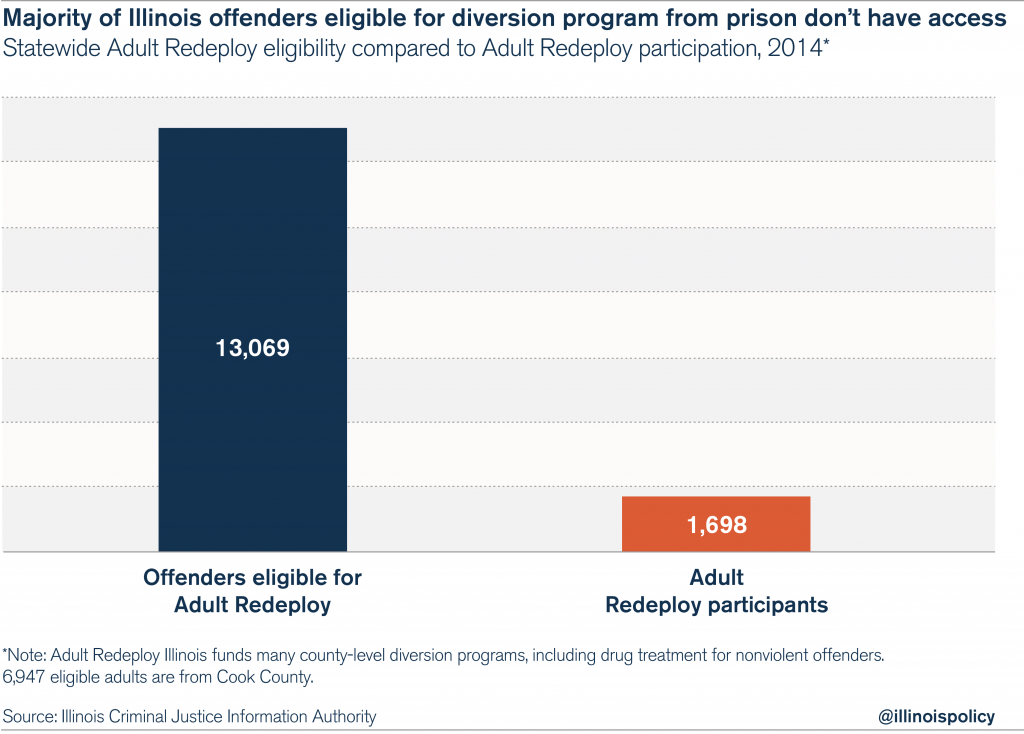Adult Redeploy has saved Illinois nearly $70 million in avoided prison spending
By investing in community-based programs that treat nonviolent offenders’ drug and mental health problems, Illinois can avoid more costly expenditures on incarceration.
Adult Redeploy Illinois, or ARI, a program that provides alternatives to prison for nonviolent offenders, has helped divert more than 2,500 offenders from Illinois prisons since it began in 2011. That has saved the state nearly $70 million in avoided incarceration costs and has reduced recidivism by up to 20 percent.
Illinois can save millions more by continuing to invest in similar cost-effective alternatives to prison.
ARI provides funding incentives for counties to create alternative programs, such as substance-abuse treatment, under which nonviolent offenders can receive targeted care at the community level, instead of going to state prison.
In return for this funding, counties agree to reduce the number of offenders they send to state prison by at least 25 percent. ARI programs cost $4,400 per offender, compared with the approximately $22,000 per-capita annual cost of housing an inmate in an Illinois prison.
Despite ARI’s success, there are still unmet diversion needs. According to data from the Illinois Criminal Justice Information Authority, over 13,000 offenders appeared eligible for ARI programs in 2014. But just 1,698 people were in ARI-funded programs that year.

This means some nonviolent offenders are being sent to prison even though their cases could be better addressed – for much less money – through diversion and treatment programs.
Why is there such a large unmet need? Lack of capacity explains this in part.
The county-level diversion programs that exist today can only handle so many people. For example, in Cook County’s Access to Treatment Court, or ACT, a successful substance-abuse treatment program, the target population for a nine-month grant in 2013 was 203 individuals. But the data show that in Cook County, 6,947 offenders could have been eligible for ARI programs in 2014. Although Cook County has at least one other ARI program in addition to the ATC, there are not enough to accommodate all the county’s eligible offenders.
Unfortunately, this shortfall may get worse before it gets better. ARI funding is threatened by Illinois politicians’ inability to pass a balanced budget, as lawmakers preferred to take extended vacations rather than work with the governor. ARI helps fund 24 programs in 39 counties across Illinois that provide drug treatment, veterans courts and other programs, as of June 2015. Without a state budget, the shortfall has endangered community-level drug treatment in places including Will and Grundy counties.
If Illinois is to reduce its prison population 25 percent by 2025, as Gov. Bruce Rauner has advocated, in addition to sentencing and re-entry reforms, the state needs to continue scaling up community-based alternatives to prison for nonviolent offenders. Programs such as Adult Redeploy show what’s possible with cost-effective criminal-justice reform.
